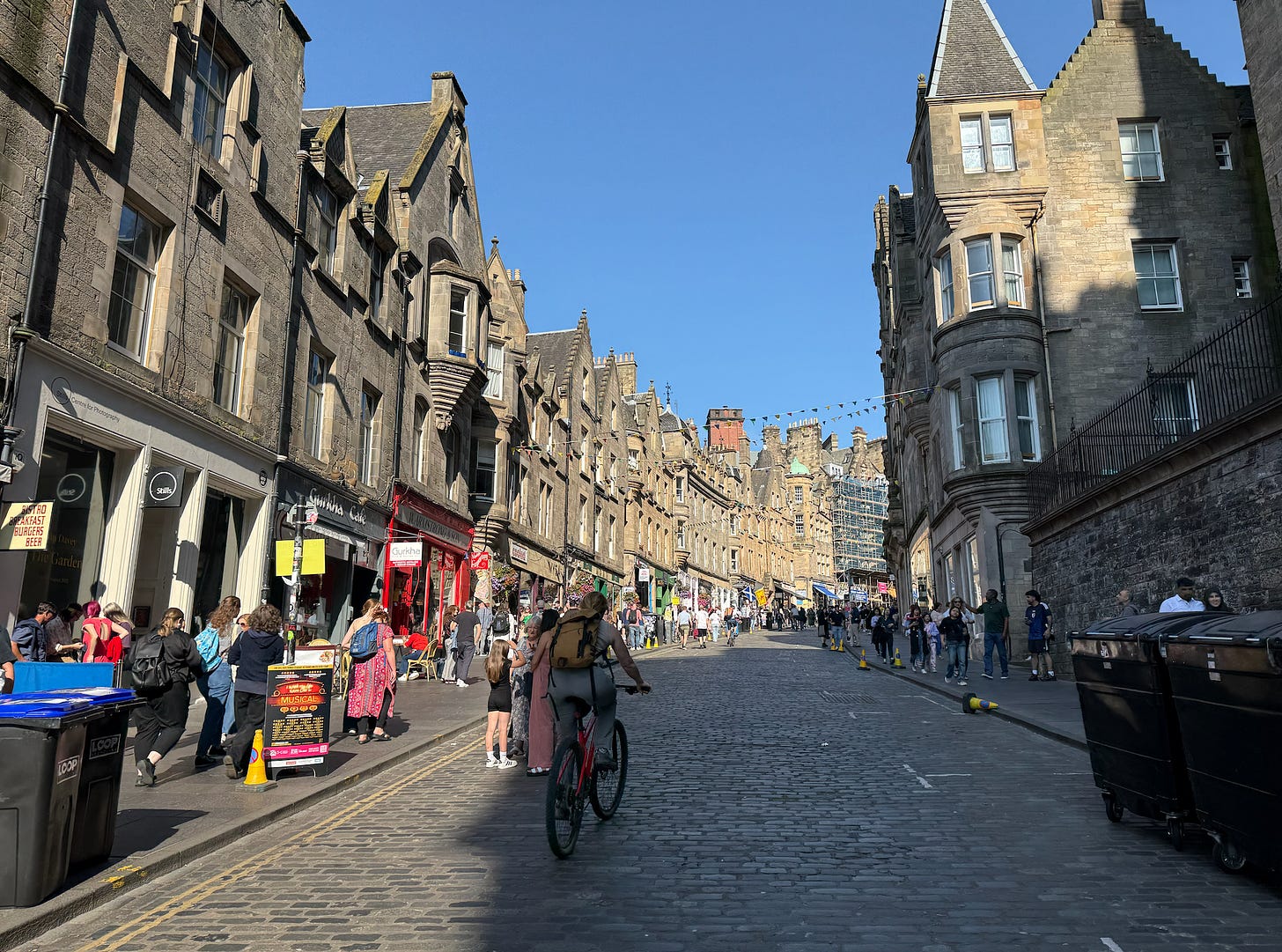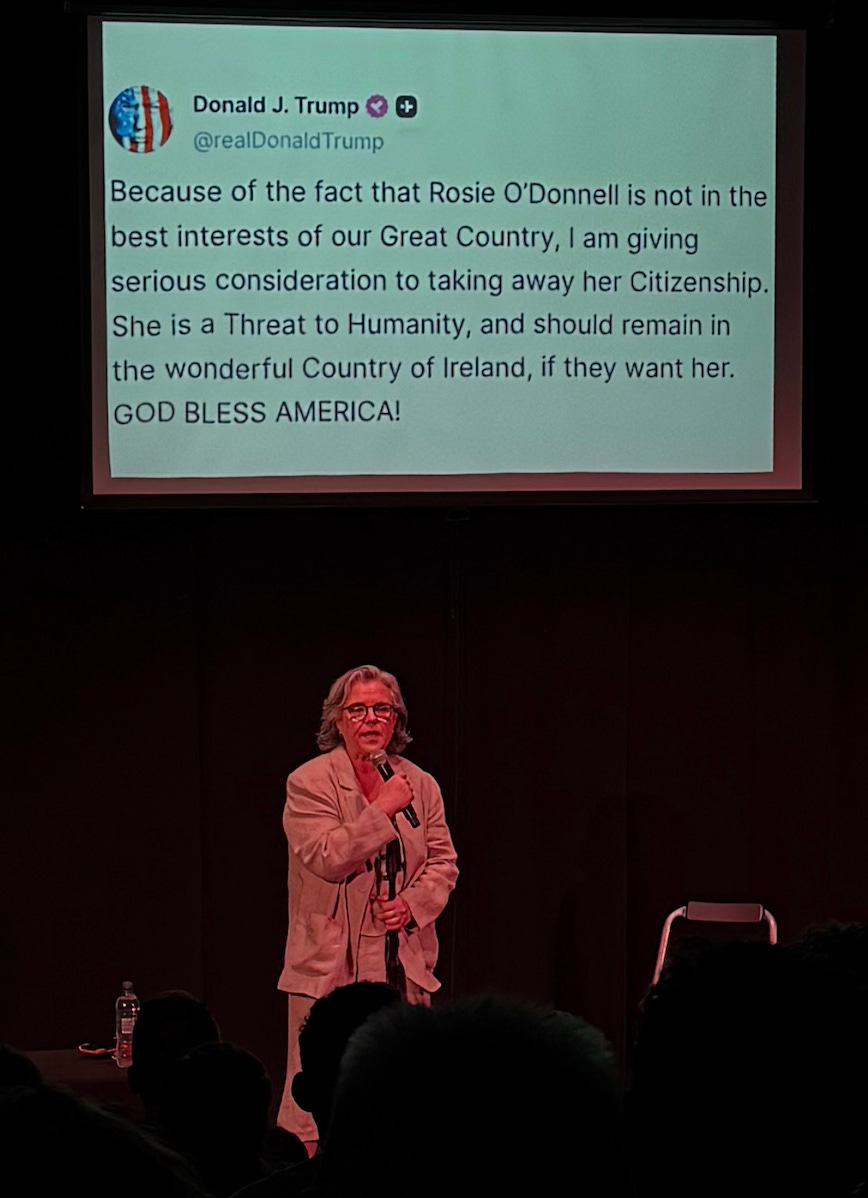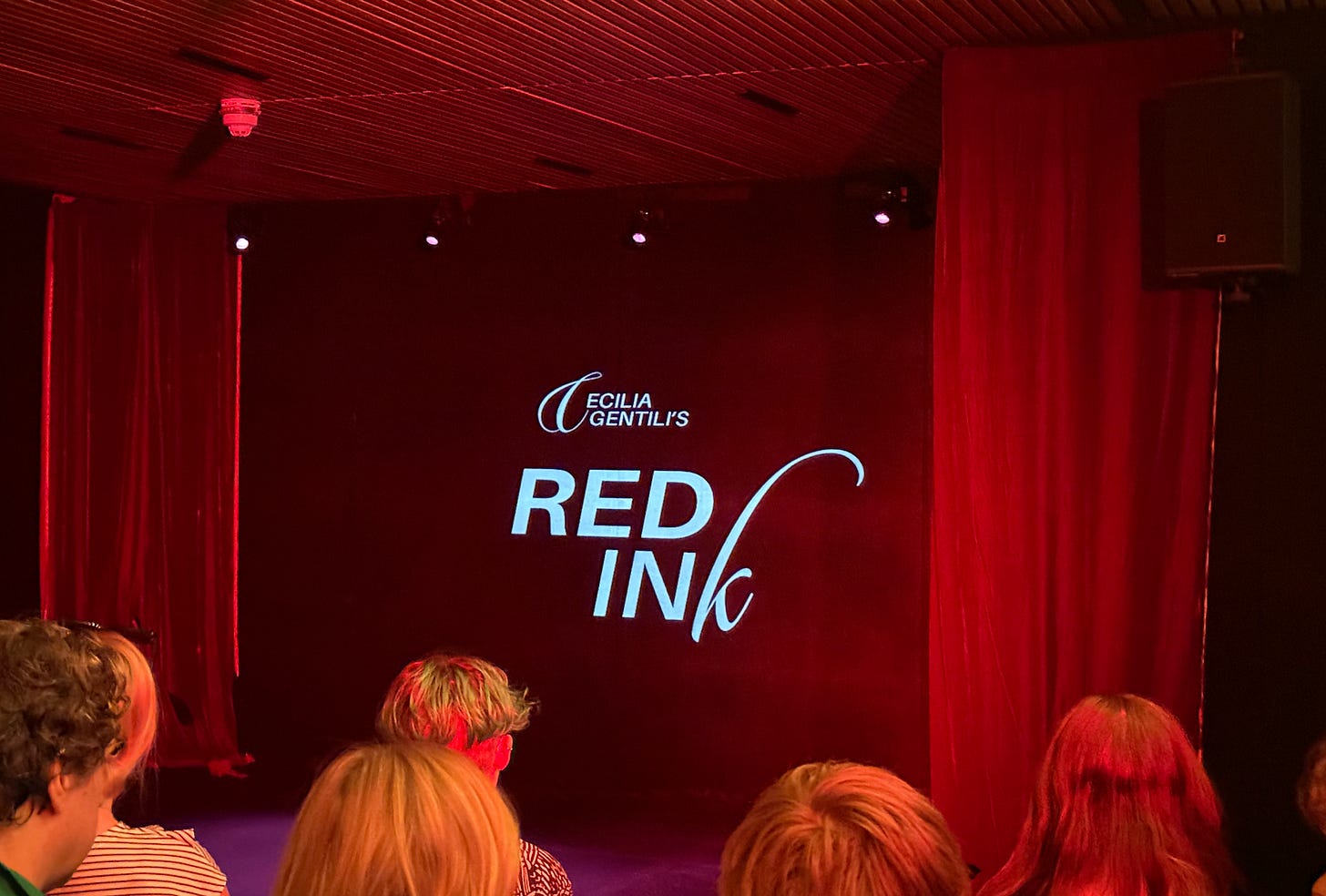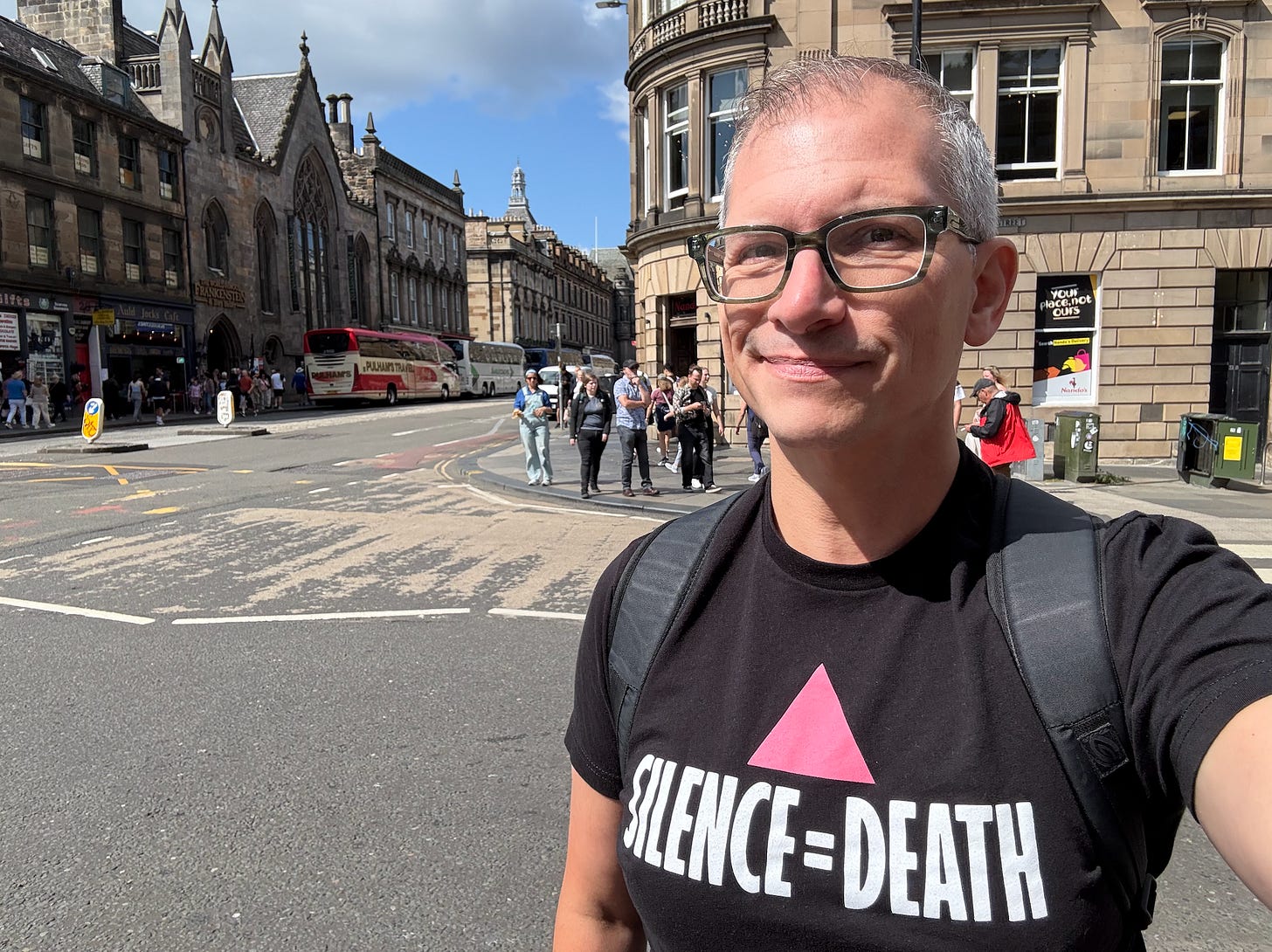Making my way in the world in 2025, as an American
The lessons I took from Edinburgh Fringe.
It’s a strange time to be an American.
As I sit in a London coffee shop, having returned from Edinburgh Fringe, I was planning on writing about the queer shows I saw — shows that included a broad range of queer experiences — but my mind keeps returning to the shows that raised the topic of America.
The show discussing both of those topics was Rosie O’Donnell’s sold-out “Common Knowledge" — a show that covered O’Donnell’s path from her childhood in the 1970s to now and the many twists and turns along the way. Today, O’Donnell is raising a precocious, autistic, nonbinary child in Ireland, a child she adopted after her other four children were nearly all out of the house.
Her child, she told us, regularly points out facts that they have gathered as “common knowledge,” providing the title of the show.
The common knowledge of this moment, across Europe at least, is that America is not well.
We know it, too.
Common knowledge.
O’Donnell, of course, left America for Ireland before Donald Trump returned to the Oval Office, leading the president to threaten lawlessly to revoke her citizenship — something he simply cannot do. And yet, he posted away.
As the world continued turning and as the Trump administration kept unleashing its cruelty and incompetence, O’Donnell, as she told us, began making a new life for herself and her child in Ireland. (There was something jarring about O’Donnell noting the “they” tattoo she got on her arm in her child’s handwriting as she nonetheless repeatedly referred to her child as “she,” but the love and intent was there — made clear by O’Donnell’s acknowledgement that her child has pointed out the same incongruence to her. She’s a loving mom, and she’s trying.)
O’Donnell is a physical representation of what has already happened in the current Trump era. Sure, it was a representation that her privilege allowed her, but it also was clearly a choice that she made for her health and for that of her child.
For nearly two weeks of shows in Edinburgh, O’Donnell is sharing those stories and more with sold-out crowds who come from all over to celebrate art and culture. It is, in some simple ways, the antithesis of what Trump is seeking to do in America.
O’Donnell’s show, for me, came a day after I saw this news from America:
Actions like these make me all the more dedicated to supporting, promoting, and being a part of arts and culture, and I was so grateful that O’Donnell — who constantly used her TV show to spread arts and culture — provided me with a moment to sit back and think about all of that.
The next day, I got a more sharp version of that message in Milo Edwards “Work in Progress” show.
At one point, he declared that, with Trump, we had found out whether the U.S. could just shut off.
It can. And, it has, Edwards explained. As he continued, Edwards talked quite plainly about the reality: When America screws up, it screws up everything else.
I’m no comedian, so I won’t try to repeat his message exactly how he said, lest I just create worse versions of his jokes. The point, though, hit directly — as people from all over the world sitting in that crowded cabaret club basement laughed around me with the laughter that enraging comedy prompts.
The queer shows I was able to see in Edinburgh, in their ways, provided me with other versions of that lesson. O’Donnell herself attended the same performance of “Cecilia Gentili’s Red Ink,” the autobiographical story of the New York City trans activist’s early life, as I did. It was not a story of pain — although painful moments were portrayed. It was, instead, a story full of laughter — a story of a trans woman coming into her own and making her own life in a world that often seemed that it would rather she not do so at all.
In “The Monkeypox Gospel,” Ngofeen Mputubwele asked himself — and, through journalism conducted during the 2022 Mpox outbreak, others — questions that made himself uncomfortable, within his faith and as the child of Congolese immigrants. Bryan Safi’s comedy show, “Are You Mad At Me??” asked the seemingly lighter questions that we ask others — and, ultimately, ourselves — on a daily basis about people-pleasing and self-image and more as we try to make our way in the world. (And yet, these are the questions of doomscrolling and sleepless nights.)
“The Pink List,” a musical from and featuring Michael Trauffer that I felt worked best in its non-musical moments, confronted us with the realities of how the Nazis’ attacks on queer people carried over into the post-war period. (It was a little off-putting, despite carrying through to modern times, that the show failed to acknowledge the pushback queer people face in this moment.) Finally, Steven Phillips-Horst’s absurdist-but-is-it-really apocalypse (Phillips-Horst will want to know that I misspelled that and autocorrect fixed it) comedy (but is it), “The Last Mad Man,” left its audience with questions about “the end” — and how it should be branded.
Appropriately, perhaps, that ended up unexpectedly being the last show I saw at Fringe, as extreme weather conditions led me to leave town a half-day early.
I have been gone from the U.S. for nearly two weeks — and have actually succeeded at removing myself a good amount from the day-to-day disaster that is unfolding before us. I needed it. I needed a moment to stop and think about the bigger picture, not just the minutia I often love diving into in my writing. Upon my return later this week, I’ll be doing so again — catching up on all of the decisions, developments, new executive orders, and new cases — but, for now, I’m keeping myself away from it for these final days of my vacation.
How I took this time away, though, was important for me. It was good to face the questions raised in Edinburgh by those outside of America. It was good to meet people in France, who quickly asked me about — and wanted to be certain where I stood on — Trump’s actions. It was good to be confronted directly with the reality that I often discuss in terms of the death penalty — the government acts in our name, whether we like that or not.
Common knowledge.







I so valued this reminder that we might need a break from the unfolding disaster before us. It is certainly changing how I spend my time. I really enjoyed this post. Thank you!
In our names. Yes.
It's there on top of the Constitution. "We the People."
We failed as a nation, and somehow, we have to help fix the broken system.
I'm glad Kamala Harris said it is broken. It doesn't just have the wrong people on top. It's broken.